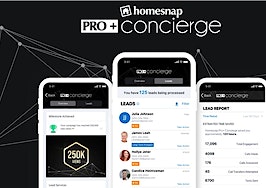Using search engines that are “private” is all the buzz as of late. In fact, you’ve probably come across posts on your favorite social networks suggesting search engine options that are built to “protect you” from the likes of Google, Bing, Yahoo and Facebook. (Yes, Facebook is a local search engine!)
In fact, after you read this article, go do a quick Google search on the topic, and you’ll find at least 10 different companies claiming they offer the best privacy solutions.
Here’s a quick render of my own Google search results after typing in “private search engines 2020” (in no particular order): Metager, Qwant, Mojeek, SearX, DuckDuckGo, Startpage.com, Swisscows, YaCy, Givero and SearchEncrypt.
What exactly does ‘privacy’ mean when it comes to a search engine?
Let’s take a moment to unpack what these private search engine sites highlight. These sites say their primary focus is offering state-of-the-art privacy. Meaning, no data from your online searches will be collected or stored. (Granted, if you want your privacy to extend beyond search and browser activity, you’ll also need to install the accompanying products each company offers.)
Because these sites do not collect data, you will not be targeted by advertisers based on your searches. (Side note: I actually went to the Facebook business pages of some of these sites, and they are running comprehensive ad campaigns for their private search engines on Facebook. Funny, right?)
Without stored data, no social engineering tactics will be implemented based on your searches and behaviors.
The goal is that all search users will get the same rendering results, meaning there will be no targeting or profiling that leads to search within your own “filter bubble.” Some of these sites are nonprofit organizations that have a charitable component to them.
Last but not least, users will be met with one smooth and infinite scroll of results (instead of page 1, 2, 3, etc.). As long as you keep scrolling downward, more search results continue loading.
On the surface, this all sounds great, especially with consumer protections and right to privacy being at the forefront of our minds when dealing with sensitive client transactions or data.
However, there is a bit of a catch-22
As real estate professionals, we’re constantly on the quest to acquire new leads. From using third-party platforms that put “quality” leads in our pipeline to running our own ads on Google, Facebook, Instagram, YouTube, Pinterest or Twitter, we rely on collected consumer behavior in order for these ads to truly optimize.
In fact, the collection of consumer data has become so impactful that oftentimes, the consumer feels like the internet knows what they’re thinking before they even begin searching.
So, what would happen if suddenly everyone started using private search engines? What if consumer data was no longer collected? What then? How many lead generation businesses would fall apart instantaneously? How effective would your targeted ad campaigns be? Would your platform investments and advertising efforts become completely ineffective?
What would be the impact on real estate agents?
Collectively, real estate professionals and consumers alike care deeply about privacy and protection. However, both groups are also interested in maintaining a strong and thriving economy composed of security, value and variety.
So, what are some solutions that will provide a better level of safeguarding? Can these adjustments be implemented without completely abandoning the search engines that provide personalization and ease of use, and power our data-driven success opportunities?
We could remember to: disable data sync, automatically clear cookies after browsing, disable location tracking, customize privacy settings and use incognito mode.
We’ve always had the ability to control what we do or don’t share with “big brother,” but the reality is that most of us simply don’t take the time to pay attention or simply adjust our settings to match what we’re comfortable sharing.
It’s a fascinating subject. I’d love to hear your thoughts on whether you think opt-in search engine privacy sites will squander real estate advertising efforts moving forward, or if data will remain the preferred “free” currency to spend.
Stacey Soleil is a marketing and technology director with WEST, a Williston Financial Group Company, in California. Connect with her on Instagram and LinkedIn.









